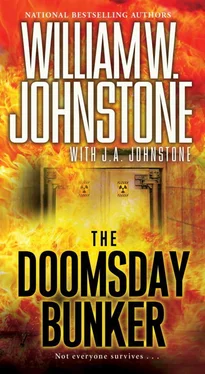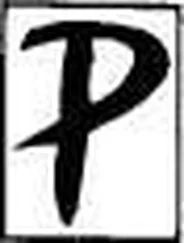“That’s a lot of money.”
“I’m thinking my daughter Sophie and her husband can kick in some. I know they’re not rich and haven’t been married long, but they’re both working.”
“Kids aren’t known for worrying much about the future.”
“Well, they’d better start,” Threadgill said. “The way things are going…”
“Yeah,” Larkin said with a sigh. “There’s that.” He had a daughter, son-in-law, and grandkids of his own, and that was a real concern.
“Anyway, you want to go out and take a look at the place?” Threadgill slid a business card across the table. “There’s Graham’s number. He’s got a website, too, so you can look it up and check it all out before you call him to set up an appointment. Just don’t wait too long.”
“At those prices, I don’t think the place is going to fill up in a hurry.”
Threadgill glanced at the TV mounted on the wall of the barbecue joint. Set to one of the cable news stations, at the moment it was showing live footage of flashing lights and cops in riot gear and smoke billowing from a building, with a graphic across the bottom that read NEW TERRORIST ATTACKS IN LONDON.
“The bunker filling up isn’t what I’m worried about,” he said.
Larkin hadn’t had a job lined up when he retired from the Marine Corps. He had a dream instead.
He was going to be a writer.
Such a crazy idea had never occurred to him when he was growing up, or during his first few years in the Corps. He enjoyed reading but never gave much thought to the people who actually produced the books.
Then he met an older Marine who edited and wrote for the base newspaper and who had been a journalist before enlisting. The guy had invited Larkin to submit something to the paper, and that had been the start of it. Larkin had discovered right away that he enjoyed putting words together and had even sold a few short stories and articles, mostly about military history, to paying markets. That had planted enough of a seed to make the dream grow.
Along the way, he had also met and married a beautiful blond emergency-room nurse. They’d had a daughter, Jill, now married with kids of her own. Larkin and Susan were soul mates and best friends, and when he’d retired from the Corps they moved back to her hometown of Fort Worth, Texas, where their daughter and her family lived. Susan’s salary, along with his retirement pension, had supported him while he took a crack at writing books.
Five years into that effort, he had done fairly well: six books sold, thriller novels under a pseudonym that had done decent numbers without being big bestsellers. Maybe he would break through to that higher level someday, maybe he wouldn’t, but either way he was having fun and doing what he wanted to do. It would be nice to make enough money so that in a few years Susan could retire, too, but they’d have to just wait and see about that.
Problem was, all those plans were moot if the world went to hell… as it was looking more and more like it was going to, with each passing day.
That was why he found himself getting out of his SUV in front of a large steel gate attached to a massive stone and concrete pillar on each end. A brass plate was mounted on one of the pillars, and on it were etched the words THE HERCULES PROJECT. That was all it said.
A Jeep was parked on the other side of the gate. Behind it, a paved road ran up into gently rolling hills dotted here and there with live oaks and post oaks and cottonwoods. At this time of year, the scenery was green and beautiful, almost like a pastoral English countryside except for the occasional clump of cactus that made it unmistakably Texas. A few low structures were visible among the hills, mostly screened from the road by trees.
A man got out of the Jeep and lifted a hand in greeting. “Patrick?” he called through the bars of the gate.
“That’s right,” Larkin replied. “You’re Graham Moultrie? I talked to you on the phone.”
“You bet,” Moultrie said with a smile. He was a wiry, medium-size man with close-cropped silvery hair and a little goatee. He wore a khaki shirt and jeans and looked more like somebody who would run a lawn-care service instead of an entrepreneur with the ability to sink twenty million dollars into something like the Hercules Project.
He took a small, square remote from his shirt pocket and pressed a button on it. Almost noiselessly, the gate began to roll back.
“Drive on in,” Moultrie invited when the gate was open. “You can park your SUV here and we’ll take the Jeep up to the office.”
Larkin did what Moultrie said. As he got out of the SUV after parking it at the side of the road, the gate began to close again.
“Feels a little like a prison,” he commented.
Moultrie laughed. “Just the opposite. We want to keep people out, not in.”
“Will that gate do it?”
“You could ram through it with a tank, if you’ve got a spare one in your garage, I guess,” Moultrie said with a shrug. “Anything short of that and it ought to hold up.”
Larkin pointed at the high chain-link fence that ran along the front of the property. “Wouldn’t take a tank to go through that.”
“No, but we’ll have some extra defenses put in place soon.” Moultrie didn’t explain what those defenses were, but he added, “For now, it can be electrified with a flip of a switch in the office or the push of a button on this remote. That’s enough to keep most intruders out.”
Larkin nodded. It still felt a little like a prison to him, but at least the fence wasn’t topped with coils of razor wire. Yet.
Moultrie waved him into the Jeep. They started along the road, weaving easily through the hills.
“You know the history of this place, I guess?” Moultrie asked.
“Yeah, mostly. My buddy told me about it.”
“Adam Threadgill.” Moultrie nodded. “Seems like a good guy. I hope he’s able to join us.”
“Us meaning you and the people who have already signed up with you?”
“That’s right. We’d all like for you and your family to be part of the Hercules Project, too. You said you were married?”
“That’s right.”
“Any kids?”
“A grown daughter. She’s married and has a little boy and girl.”
“Grandkids,” Moultrie said. “That’s great. I don’t have any children myself, and I wish I did. There’s something about being able to see the continuity of the family. Kids and grandkids are like… a physical manifestation of the future.”
“Assuming we make it to the future.”
“Well, yes,” Moultrie said, “there’s that.” While he drove, he moved his head to indicate their surroundings. “That’s why we have the Hercules Project.”
“Named after the missiles that used to be here, I suppose?”
“That and because Hercules is a symbol of strength. That’s what we’re doing here. We’re making a stronghold to ensure the future of humanity.”
“You really think that’s necessary?” Larkin asked.
“I hope every day that it’s not… but I’m a practical man. Practical enough to recognize that the possibility exists, and it’s not going to go away, no matter how much most people want to ignore it.”
Larkin nodded. Moultrie was a salesman, all right… but that didn’t mean he was wrong.
Moultrie drove around a clump of trees and pulled into a gravel parking lot in front of one of the squat, tan brick structures Larkin had caught a glimpse of from the gate.
“This is the office,” Moultrie went on. “We’ll stop in here for a minute and then walk on up to the bunker’s main entrance.”
Inside looked like hundreds of other offices Larkin had seen in his life, with a couple of desks, computers on each one, filing cabinets, and a water cooler. Two things were different: an oil painting of a big missile with flame blasting from its tail hung on one wall, presumably one of the Nike Hercules missiles that had been kept here… and behind one of the desks was a drop-dead gorgeous redhead who looked more like a fashion model than a secretary.
Читать дальше









